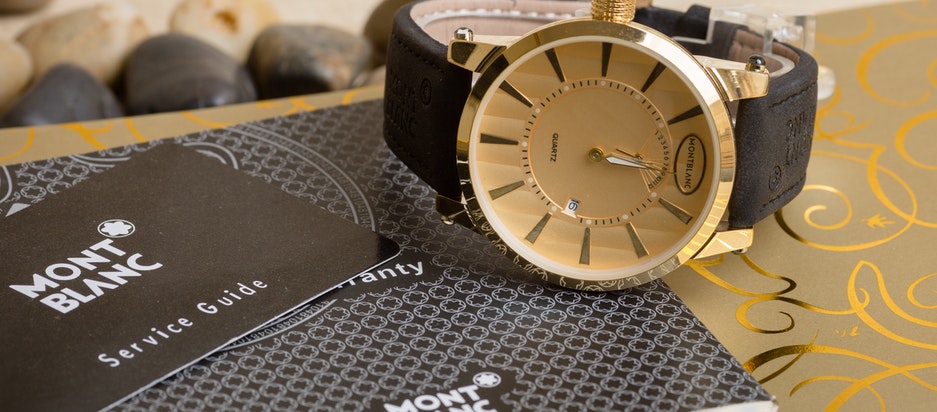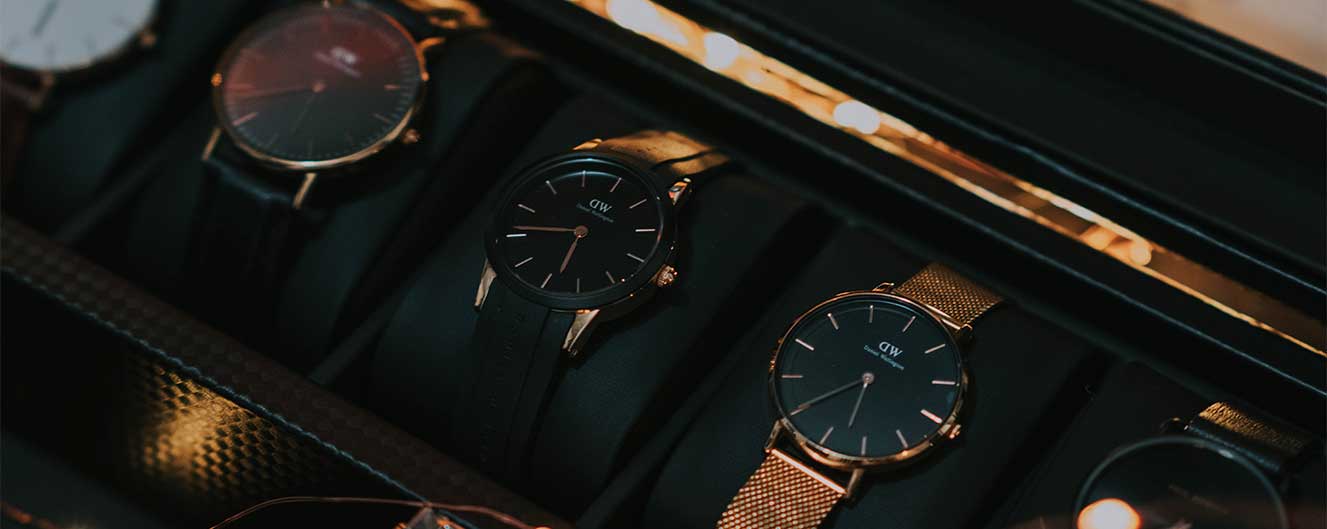Are you having problems with how to store watches? If you have an extensive collection of watches, you probably wonder how you can keep all these valuable items safe and sound. Whether your watch is a luxury or an ordinary one, it is essential to take care of them, especially when you are not using them yet.
It is vital to have a safe space for your watch to prevent damaging environmental factors such as gravity, shock, temperature, water, and even the playful kids at your home. You need reliable storage to keep them safe and follow some practices to prolong their usage.
To help you out, here are seven different ways to store watches and keep them in their top shape for a long time.
Tips on How to Store Watches
Choose among various storage options.
Whether you want your watches to be displayed or well-kept, you need reliable storage to keep them safe from damage. You can choose and invest from many types of storage depending on how many watches you own or want your watch collection storage to look in your closet or any space in your home.
Watch box or case
Watch boxes or cases are ideal to both keep and display your watches safe. It features soft padding and lining to avoid scratches on the back of the wristwatch. The case also features a glass lid. It lets you see them inside even as you close the box, making it the best way to display watches. It also keeps your timepiece free from dust and dirt, as long as it is well closed.
Watch pouches
Aside from makeup and sunglasses, using a pouch to store watches is also a good and affordable option, especially if you are starting with your watch collection. It is reliable storage and protects your wristwatch because of its high-quality leather.

The watch pouch can only hold one inside. Because of this, it is easy to organize in your drawer or carry with you when you travel.
Watch rolls
If you can use a watch pouch for travel, you will find watch rolls as a better option if you often travel a lot. Watch rolls are easy to carry because of their compact and handy size. You can choose between a canvas or leather wrap watch roll or the one with a hard case.
Watch winders
If your primary concern is to keep your watch working as you keep it for a long time, the watch winder is a great pick. Watch winders will allow your timepiece to run without being torn. However, you need to change the oil or lubricant every five years to keep it working fine.
Safe storage
A safe is suitable for the most valuable and luxurious watch you own. You can invest in a good quality small safe if you have one or two wristwatches to protect. Aside from wristwatches, you can keep other heirlooms inside—items like jewelry or even the paperwork that come together with the watch are safe from any damages, robbery, or theft.
Keep the storage from moisture.
Now that you have a safe space to store your watches, it is not enough to place them inside. Before putting the wristwatch in your preferred store, you should think about moisture, the number one enemy of your watches, once they are inside the safe box.
The storage temperature plays a vital role in the moisture build-up. A cold safe is susceptible to moisture and condensation. You should be more aware of this if you own quartz watches. Condensation is the common reason for its IC circuit getting damaged.
To avoid moisture, you can put a silica gel inside regardless of the type of storage you choose. If you buy any electronic gear, you will see a silica packet in its package. You may reuse it if you want or buy a new one in bulk.

Most watch collectors recommend using desiccant gel packets. They are small, round, blue silica gels that change color to white or pink once they soak up moisture, indicating it is time to replace them.
Clean the watches first before storing them
One of the things you should note on how to store watches is to clean them first before storing them. Make sure you remove the dirt and dust first, so they will not accumulate inside.
Before storing your watches, you need to clean them off to remove dirt and dust. These particles are tiny but can damage their physical build and technical parts.
You can clean the outer parts of your watch using a soft cloth and warm water. You may use a small brush for areas the fabric cannot reach. You can schedule cleaning every other month if you like to keep them new as always.
Don't forget to remove the batteries if you will not use them for a long time.
Some watches, such as Quartz, have batteries inside. These batteries will wear down and leak if left for long, especially when not in use. When this happens, it may cause severe irreparable damage to the watch.
To avoid it:
- Make sure you remove the batteries before storing them. You can do it by using a small screwdriver.
- Pry off the back, and you will see the battery right away.
- Pop the battery out gently. Suppose it is too complicated for you to remove, you can take your watch to a watch repairer and have them remove the battery for you without affecting other delicate mechanical parts of the timepiece.
Always store your watches face up.
Make sure you store your Rolex, or any other brands face up to avoid potential damages. Whether you have a soft cushion in your watch storage box, facing the watches down will make them prone to scratching the glass or the bezel. They might even crack if you face down too hard. It would be best if you also faced the watches up when you placed them in a pouch.
Keep the paperwork and the package in a safe

The same way you organize watches is also how you should keep their paperwork intact. When buying new appliances at home, you may often misplace the papers or even throw them out, thinking they are useless. But it is not the case for watches. Their papers hold much value and importance as well.
Keeping all the paperwork or certification of your watches is necessary, especially if you need to insure or sell them. Ensure the Certificate of Authenticity, the receipt, and the warranty are all safe. You can also put the original package or box intact with the papers.
Aside from keeping the physical copies in a safe box, you can also make a digital backup copy of these documents, just in case.
Conduct regular service or maintenance
For watches you plan to keep for a longer time, you need to check them up and use them at least once or twice a year to prolong their life. As you put them out in the storage, you may want to bring your watch to their official watchmaker to keep their mechanism working fine. The same goes for watches you often wear. In this way, the mechanical parts will be cleaned, lubricated, and will last for more years even if you keep them back in the storage.
FAQs
1. What is the best way to store watches?
The best way to store your timepieces is by choosing a box to keep watches free from getting dirt, scratches, or falling. You may also choose other types of storage such as pouches, rolls, winders, and a safe box. Do not forget to include a silica gel inside to prevent moisture build-up, as it is the main factor that can cause damage to the watch.
2. How do you store watches when not wearing them?
If you have several watches in your collection, you may want to store the ones you will not wear or use in watch storage to keep them from getting damaged or worn out. Aside from holding the watches in a safe, you can also try to display them by using a watch case with a glass lid. In this way, you will still see them often and know if all of them are still working fine.
3. Should the watch be stored flat?
If you are storing your watch in a box, case, or a safe, it doesn't matter if you place them flat on soft material or wrap them around a watch holder. But if you will be traveling and using either a watch pouch or a roll, keep them flat facing up. In this way, you can prevent damage to your timepiece and keep its glass front and bezel-free from any scratch.
4. How long do watch batteries last in storage?
A good quality watch battery can last for at least three years when not in use as long as you conduct regular check-ups or maintenance on them. But the shelflife will also depend on the type of watch battery used.
For example, a lithium battery can last up to 10 years, alkaline batteries for up to five years, lithium-ion and silver oxide for three years, and zinc batteries for two years.
Temperature and humidity will also play a vital role in deteriorating the watch batteries.
5. Is It OK to leave an automatic watch unwound?
If you are storing automatic watch unwound or stopped when not in use is fine and will not cause any damage. Watch displays you see in stores that are not running for months and still work fine and do not show any signs of deterioration once run.
Thus, if you plan to keep your automatic watch on the shelf for a long time, you do not need to worry. You can rewind your wristwatch if you want to wear it.

